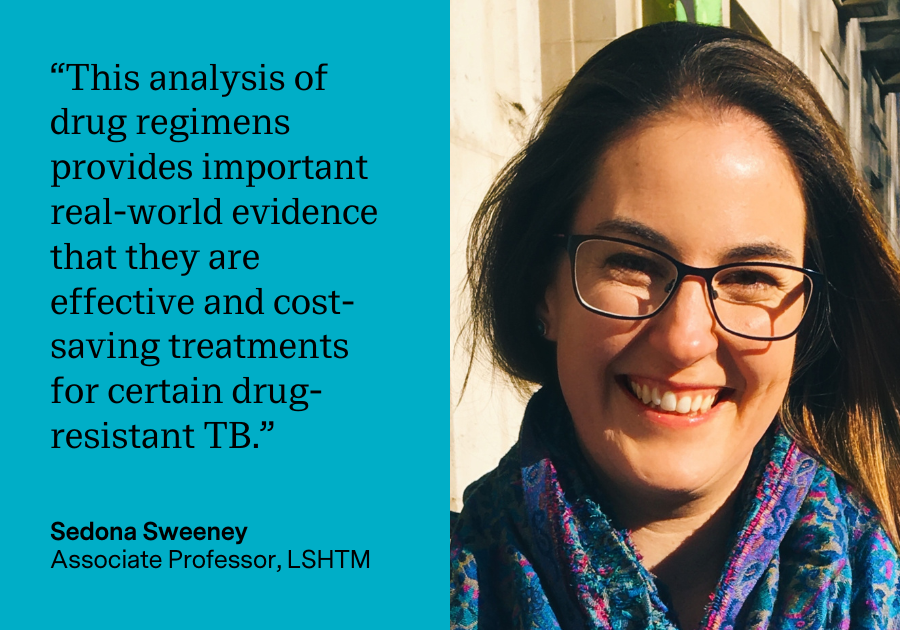
A new study, led by researchers at the London School of Hygiene & Tropical Medicine (LSHTM), is the first economic evaluation to use real-world data from trials to identify that the most cost-effective treatment for antibiotic-resistant tuberculosis (TB) is BPaL – a new treatment that combines multiple antibiotics: bedaquiline, pretomanid, and linezolid.
The findings, which are the first to measure its cost utility in a real-world trial setting, reinforce WHO recommendations to use BPaL-based treatments, demonstrating that its implementation can be financially feasible for countries with high levels of rifampicin-resistant TB.
Published in the Lancet Global Health, the publication looked at hospitals and ambulatory health facilities in Belarus, South Africa, and Uzbekistan. Researchers analysed whether BPaL proved to be better treatment for patients, and calculated its cost-effectiveness, in comparison to other existing treatments offered against rifampicin-resistant TB.
Patients not only had better health outcomes, but were found to have saved an average of $172 (US) in medical costs when they received BPaL as a treatment – a 35% cost reduction compared to other standard treatments. For the health care provider, the researchers calculated that BPaL treatments saved an average of US$14 868 per person over 20 years.
These results demonstrate that BPaL treatments can provide massive cost savings for both patients and healthcare providers, supporting recommendations to use BPaL outlined in the most recent WHO guidelines on rifampicin-resistant TB.
Approximately 500,000 people are affected by rifampicin-resistant TB per year. A 2024 estimate looking at people infected with rifampicin-resistant TB finding that only two-in-five of them receive appropriate treatment. And of those, only 68% were successfully treated for their TB.
BPaL has been established as an effective treatment for rifampicin-resistant TB by recent WHO guidelines, and many countries are already scaling up treatment using this new regimen. This real-world evidence can help support WHO recommendations, making BPaL the preferred treatment for people with pulmonary RR-TB worldwide.
Sedona Sweeney, Associate Professor at LSHTM, said: “This was the first within-trial cost-utility analysis of BPaL-based regimens for rifampicin-resistant TB, and adds important real-world evidence to consistent indications from modelling studies that BPaL-based regimens are cost-saving. This was a great collaboration with MSF, which will mean substantial improvements in quality of life for many people with rifampicin-resistant TB globally.”
Publication
Sedona Sweeney et al. 24-week, all-oral regimens for pulmonary rifampicin-resistant tuberculosis in TB-PRACTECAL trial sites: an economic evaluation. The Lancet Public Health. https://doi.org/10.1016/S2214-109X(24)00467-4
If you enjoyed this article and would like to build a career in global health, we offer a range of MSc programmes covering health and data, infectious and tropical diseases, population health, and public health and policy.
Available on campus or online, including flexible study that works around your work and home life, be part of a global community at the UK's no.1 public health university.
